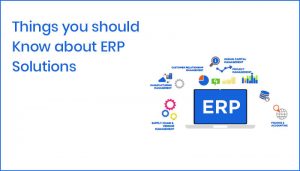ERP Important – Enterprise Resource Planning allows you to streamline routine operational tasks, saving you money and time.
As a small business owner, you must plan your day carefully. Time spent on administrative or operational tasks like payroll or inventory management could be better spent investigating fresh development opportunities.
Many small businesses rely on outmoded accounting and Small Business ERP systems that cannot meet their needs. You require an ERP solution that can adapt to the changing needs of your business.
ERP for small businesses
Leaders of rapidly growing smaller enterprises cannot continuously monitor what is happening in every area. For example, they may be uninformed of how much inventory their company has or requires.
The ERP Important enables owners and managers to keep track of what is happening in all parts of the organization, including administrative and operational operations, human resources, procurement, manufacturing, warehousing, sales and marketing, customer support, and more.
Benefits of ERP solutions for small businesses
Small Business ERP software allows companies to optimize workflows, automate procedures, and reduce the need for manual data entry. ERP systems benefit small and medium-sized businesses (SMEs). –
1: Custom Reporting: Reporting is used by businesses to track key performance indicators (KPIs) across all departments. If one division or functionality falls behind, it may impact the others. However, it is hard to generate appropriate reports without a sound system. A robust ERP solution gives reports that show where you are already efficient and where you can improve
2: Scalable Production: ERP increases the scalability of business processes. Process automation reduces staff workload and maintains a thorough workflow record. A cloud ERP package can be used to rapidly extend business operations by automating business processes on the cloud.
3: Automated Workflow: Automating data flow makes it significantly less probable that human error may result in missing orders, inventory mishaps, or miscommunication. When your company runs like a well-oiled machine, clients enjoy a consistent and dependable experience, and employee engagement rises.
Drawbacks of ERP Important for small businesses
There are various barriers that organizations must overcome to reap the full benefits of a Small Business ERP system.
1: Cost: The biggest impediment to ERP adoption is the cost of pre-integration and ongoing subscriptions and licensing associated with technology. As their businesses grow, they may require more supplemental services or software.
2: Implementation Challenges: Maintaining an ERP system requires time, money, and resources, even with a rigorous setup checklist. Businesses that have a significant number of spreadsheets and paper files may face a lengthy data migration process.
3: Data Quality and Migration: Knowledge is only as valuable as its source, even with a centralized database. Businesses with poor documentation will have difficulty entering their data into the new system. In such circumstances, consulting with a data immigration expert may be beneficial.
In a nutshell,
The results of your study may not give you a clear idea of which erp software is best for your business. This is where Connected IT Consulting’s ERP Consulting comes in handy.
We at Connected IT Consulting offer an ERP development assessment in which our ERP development professionals evaluate your existing technologies and goals. As a result, you will be able to create a roadmap to aid in selecting Small Business ERP solutions.



